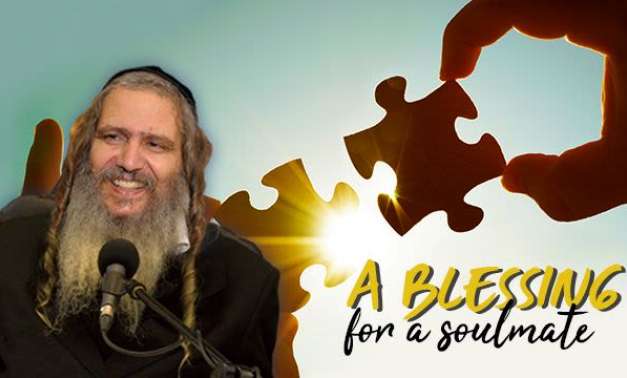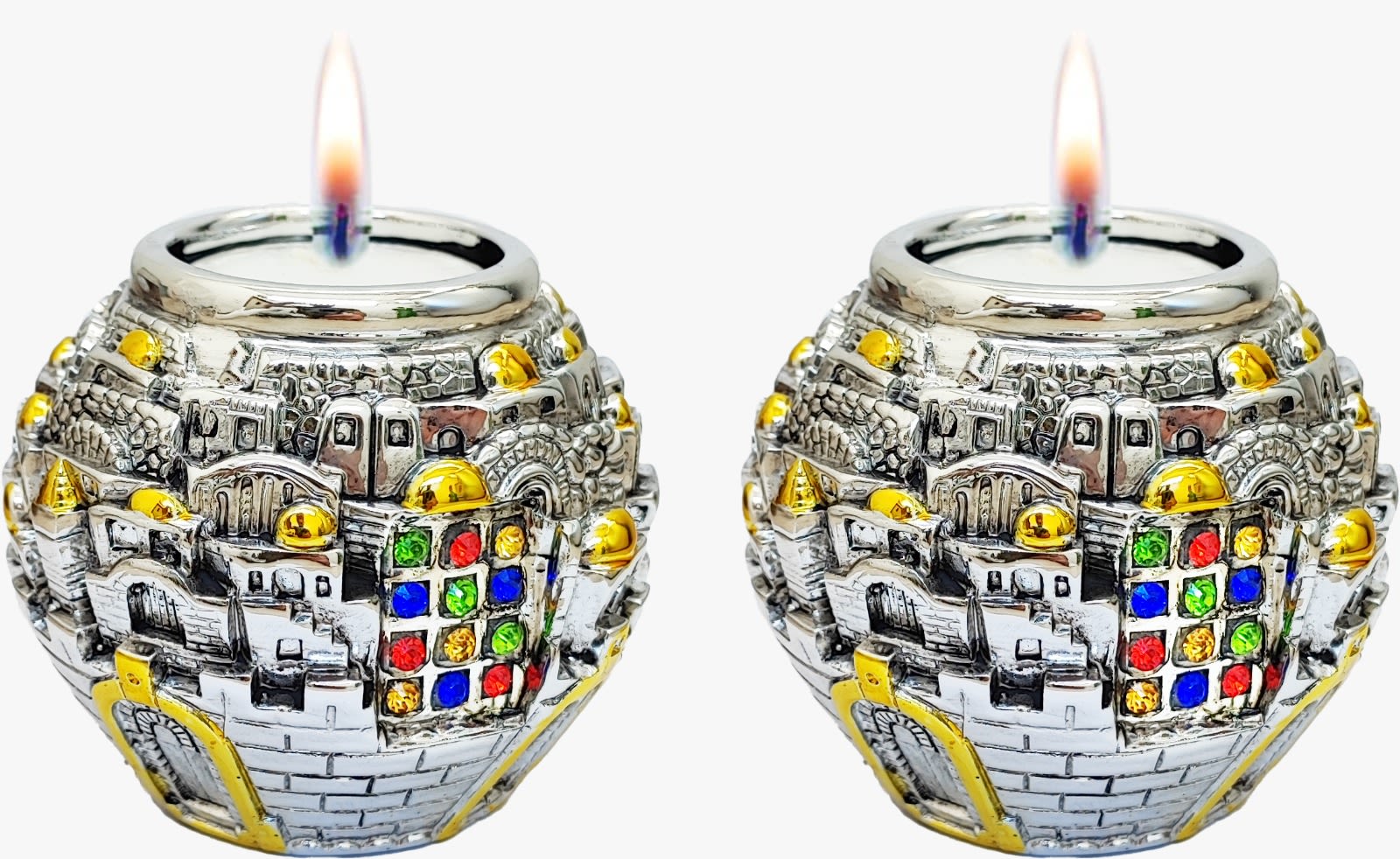
A Lost Chance
“Rabbi, when will I find my beshert, my destined one.” The rabbi’s answer was sharp,“You found her, but you weren’t interested.”

This story, sadly enough, is true.
I once heard of an older bachur who asked a leading rabbi, “Rabbi, when will I find my beshert, my destined one.” The rabbi’s answer was sharp and very much to the point. “You found her, but you weren’t interested.”
When Shmuel showed up at our door Friday afternoon, I realized that something was wrong. Shmuel was an old family friend. He had lost his wife several years ago and often spends Shabbat with us. Although he was putting on a brave act, we had been friends too many years to be fooled. He was upset about something.
It wasn’t until much later, after the children were in bed and the table cleared, that we finally had a chance to really talk. I knew how lonely Shmuel was; he often spoken to us about that. Although his children visited several times a week, most of the time he was alone, desperately searching for ways to fill the endless, empty hours.
Retired, he spent most of the day studying with a chevrusa day in a nearby Beit Medrash. But he dreaded returning at the end of each day to an empty house, where he would somehow have to cook a nutritious meal – for one- in a spotlessly clean, barren kitchen.
About a year ago, Shmuel told us that he was interested in remarriage, and asked us if we knew of anyone suitable. Shmuel is a Cohen, and therefore it is forbidden for him to marry a divorcee. I knew of no unmarried girls or widows that might fit the bill.
“Any new marriage prospects?” I asked, assuming – and rightly so – that that was what was bothering him tonight.
“I found the right girl, but it’s not going to work.” Shmuel proceeded to tell us the following story.
“About half a year ago,” Shmuel began, “I bumped into an old acquaintance, Lorraine, a woman who I had gone to school with over forty years ago when I was studying in the Hebrew University. Actually, I would never have recognized her – she had changed drastically – but someone mentioned my name, and she asked if I was the same Shmuel that she had known many years before.
“Of course we started talking, and I mentioned to her that my wife had passed away. She was surprised at how orthodox I had become, but recalled that even then I had had quite a religious bent.
“While I was studying at the University, I became very close to one particular girl, Chana. We had talked about marriage and although we were never officially engaged, it was understand that we would eventually become husband and wife. One day, however, Chana just disappeared, and as much as I tried, I was never able to find her. I made sure to forget about her and got on with my life, thank G-d.
“I recalled that Chana and Lorraine were from the same Midwestern town, and was just about to ask about her, when Lorraine asked, ‘Do you remember your old girl-friend, Chana?’
“’Of course,’ I replied. ‘How is she?’
‘”I think you should call her. She never married. I really can’t understand why. I am sure that she would be thrilled to speak with you.’
“The next day I rushed home from the yeshiva to call. She was flabbergasted when she realized that I had called her. So many years had passed. She had also become much more religious and we spent several hours catching up on the last four decades of our lives. She was living in New York, had an excellent job as a speech therapist, and had worked her way up the professional ladder. Between administrating some type of a program and consulting privately in the evenings, she was extremely busy.
“But as successful as she had been with her professional life, her private life was a disaster. Several years ago, she had been diagnosed with cancer and had spent several weeks undergoing chemotherapy, and then radiation treatment.
“She told me how jealous she had been of the other woman in her room, with her constant stream of visitors. Although Chana’s friends came to visit, most of the time there had been no one there to comfort her. ‘I was petrified of dying without anyone at my side,’ she told me candidly.”
I listened to the story and wiped away a tear. I had recently spent a few weeks in the hospital and my family had remained at my side around the clock. I felt grateful for what I had, and pitied her for being so alone.
“We spoke on the phone every day and our relationship continued to develop. Somehow, the house did not seem so empty anymore.” Shmuel paused for a few moments, to gather his thoughts. “One day I received a letter, containing a photo with a short note. ‘Are you still interested in meeting this woman?’ it said.
“I was shocked. Forty years ago, Chana had been a young vibrant girl. Today – well – the picture she sent me was of a wizened old woman with wrinkled skin and crows feet around the eyes. If I hadn’t known that it was her, I would have never recognized her. Of course, I’ve also grown a bit older over the years,” he smiled, “but it is shocking to see such a drastic change in another person. But I was still interested in continuing the relationship.
“We arranged to meet, and I flew to New York to spend a few weeks with her. What can I tell you? We hit it off perfectly. It wasn’t long before we started discussing marriage. After all,” he laughed, “at my age one really can’t afford to wait too long.”
“But that was when I was in for a shock.” Shmuel had to pause for a few moments to organize his thoughts before he could continue.
“‘Shmuel,’ she began, ‘as much as I feel close to you and enjoy every moment that I am with you, I cannot marry you.’
“’Why not?’ I asked, dumbfounded. Everything had seemed perfect.
“’I’m a professional,’ she explained. ‘And I earn a lot of money. I cannot marry a man who earns less than I earn.’
“’But I have enough money put aside for us to live comfortably for the rest of our lives,’ I argued. ‘What difference does it really make?’
“’I know that I’ll never be able to fully respect a man who earns less than I earn. I have a very prestigious job and I’ve worked my way up the ladder of success. You’re retired after spending years running a yeshiva office. It would be step down for me to marry a man with a job like that, who had never made it in the professional world. I just can’t bring myself to do such a thing.’
“’But Chana,’ I argued, ‘if you were ill, would I come to visit you in the hospital?”
“’Shmuel,’ she replied, her eyes flooding with tears, ‘of course you would be there for me. I know you well, and you would stay with me day and night. You wouldn’t leave me for a moment.’
“’Isn’t that worth something?’ I asked. I wanted to show her that marriage was built on devotion, loyalty, love – things that are far more meaningful than a pay check and a prestigious job.
“’Yes, that is worth a lot – an awful lot, more than I can imagine. But as much as I care for you, and would like to marry you, I can’t. I can’t bring myself to marry a man who earns less than I do.’
“And that was the last time I ever saw her. She’s not young. She’s close to sixty. I still care for her – deeply – and I hope that someday she’ll find that perfect man. I really do. I want her to find happiness, although it is already much too late for her to build a family. But for some reason, I doubt if she ever will.
“Anyway, that’s why I’m here this Shabbat, instead of in my own home. I just couldn’t face the emptiness; the loneliness.”
After hearing Shmuel’s story, there was really little that either my husband or I could say. I quickly cleaned up what was left of the dishes, and retired for the night.
The next morning, my children were surprised at how strongly I hugged them.










Tell us what you think!
Thank you for your comment!
It will be published after approval by the Editor.